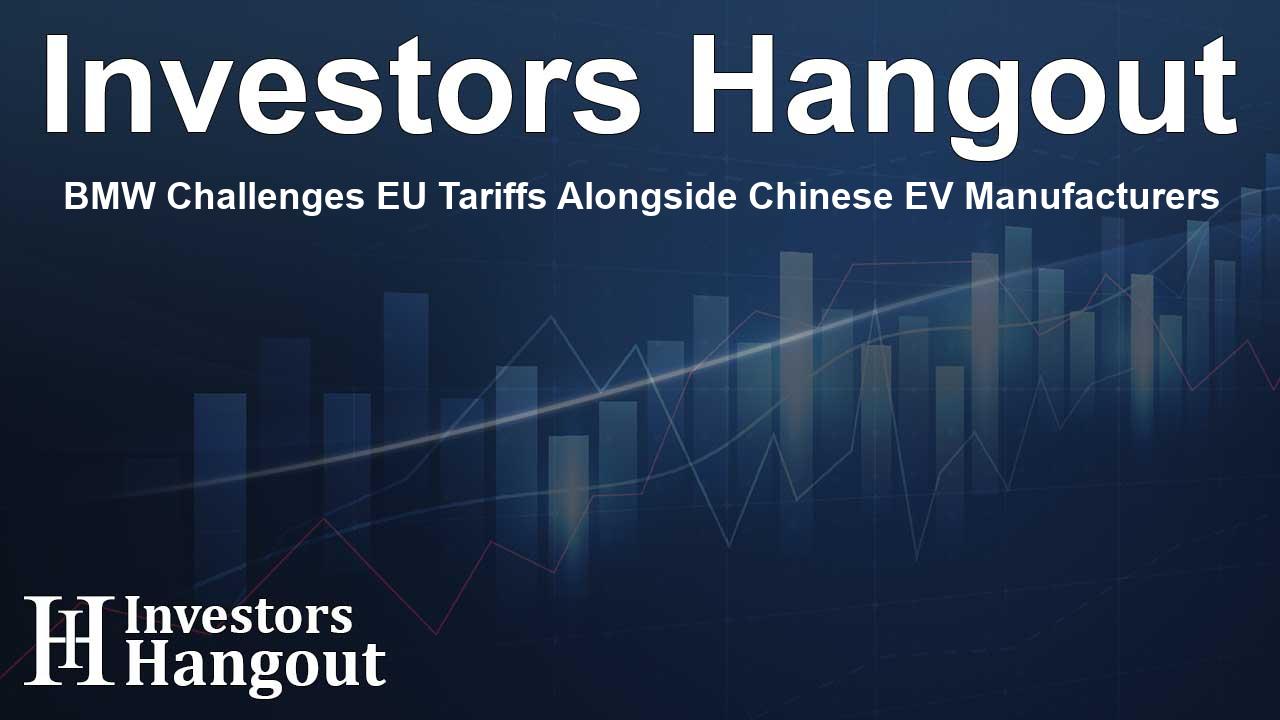BMW Challenges EU Tariffs Alongside Chinese EV Manufacturers

BMW Takes a Stand Against EU Tariffs
In a significant legal move, BMW has joined Chinese electric vehicle manufacturers in filing a challenge against the European Union's tariffs on vehicles manufactured in China. This legal action is directed towards the Court of Justice of the European Union (CJEU), marking a crucial moment for both the automaker and the broader industry.
Background of the Tariffs
The European Union introduced these tariffs at the end of October after initiating an anti-subsidy investigation. BMW, renowned for its innovation in electric vehicles, faces a notable tariff rate of 20.7% for its electric models, including the electric Mini Cooper and the electric Mini Aceman, which are produced in China.
Legal Proceedings and Timeline
Bearing the weight of this challenge, the German automotive giant submitted its complaints to the General Court, which is one of the two divisions of the CJEU, on the eve of the deadline for such filings. Typically, proceedings at the General Court can extend for around 18 months and may allow for appeals, showcasing the lengthy judicial process that lies ahead.
Industry Reactions and Implications
While the details of the case filed by BMW remain sparse, the legal arena is not limited to this automobile manufacturer. Several other Chinese electric vehicle makers, including industry leaders like BYD, Geely, and SAIC, along with the auto sector organization CCCME, have also taken similar actions against the EU's import tariffs. This collective response highlights the industry's united front against what they perceive as unfair trade practices.
Future of Electric Vehicles
This legal battle signals a critical moment for electric vehicle manufacturers, showcasing their determination to push back against tariffs that they believe hinder competition and market access. As global demand for electric vehicles continues to rise, the outcome of these legal proceedings may shape the future landscape of the automotive industry across Europe.
Conclusion
As BMW navigates this complex legal journey alongside its Chinese counterparts, the developments will undoubtedly attract significant attention from industry experts, policy makers, and consumers alike. The implications of the EU's tariffs and the resultant legal challenges could redefine international trade relations within the electric vehicle sector, setting a precedent for future interactions.
Frequently Asked Questions
What prompted BMW and others to challenge the EU tariffs?
BMW and other manufacturers view these tariffs as detrimental to fair competition and market access for China-made electric vehicles in Europe.
How high are the tariffs imposed by the EU on Chinese EVs?
The tariffs imposed by the EU on Chinese electric vehicles are currently set at a rate of 20.7%.
What are the implications of the court's decision?
The court's decision could impact the competitive landscape for electric vehicle manufacturers and trade relations between Europe and China.
How long do legal proceedings typically take in the CJEU?
Proceedings at the General Court usually last around 18 months, and appeals may extend the timeline further.
Which other companies are involved in the challenge?
Other companies like BYD, Geely, and SAIC, along with the CCCME, are also challenging these tariffs at the court.
About The Author
Contact Lucas Young privately here. Or send an email with ATTN: Lucas Young as the subject to contact@investorshangout.com.
About Investors Hangout
Investors Hangout is a leading online stock forum for financial discussion and learning, offering a wide range of free tools and resources. It draws in traders of all levels, who exchange market knowledge, investigate trading tactics, and keep an eye on industry developments in real time. Featuring financial articles, stock message boards, quotes, charts, company profiles, and live news updates. Through cooperative learning and a wealth of informational resources, it helps users from novices creating their first portfolios to experts honing their techniques. Join Investors Hangout today: https://investorshangout.com/
The content of this article is based on factual, publicly available information and does not represent legal, financial, or investment advice. Investors Hangout does not offer financial advice, and the author is not a licensed financial advisor. Consult a qualified advisor before making any financial or investment decisions based on this article. This article should not be considered advice to purchase, sell, or hold any securities or other investments. If any of the material provided here is inaccurate, please contact us for corrections.
